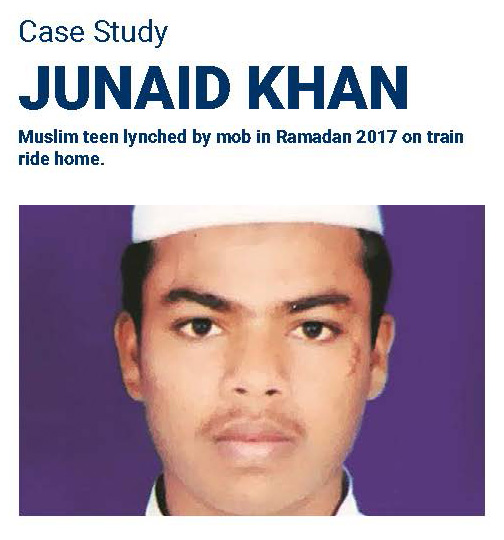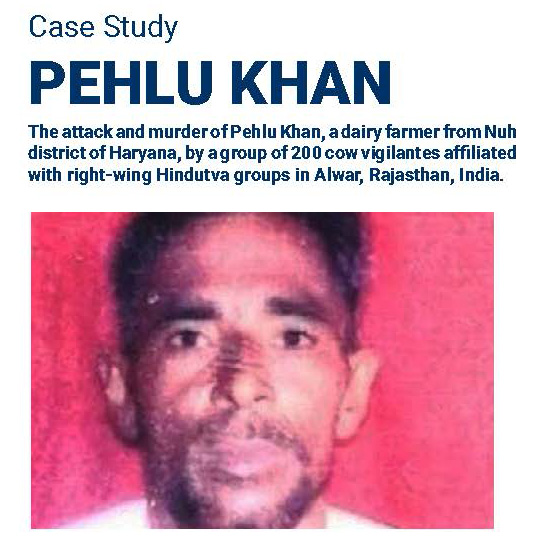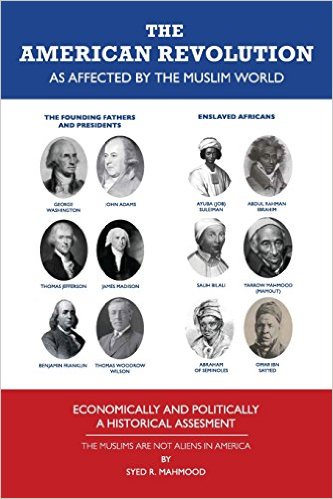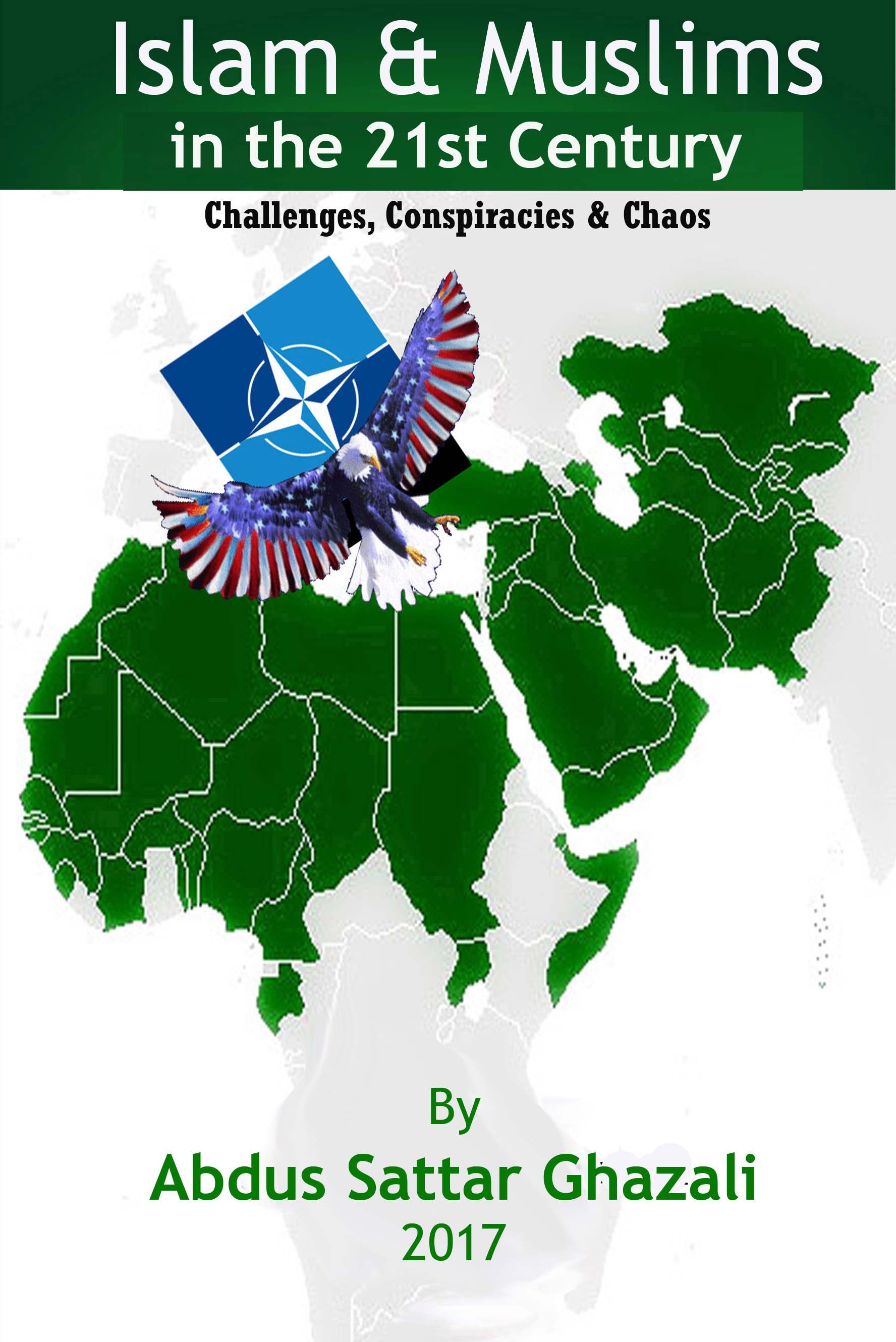Berkeley University study of Islamophobia in India highlights plight of Muslims-P2
Junaid Khan: Muslim teen lynched by mob in Ramadan 2017 on train ride home:
One significant case in 2017 was that of sixteen-year-old Junaid Khan. Khan was a young student home from school for the Muslim religious holiday Eid. On June 23, Khan and his brother left their Khandawali village, district of Palwal, Haryana headed for Delhi by train to shop for the Eid holiday. As he was returning home with his brother and two friends, he was lynched to death by a mob of young men on a public train.
The police arrested six men shortly after the lynching who admitted to participating in the beating, but not the stabbing of Junaid. Yet the end of March 2018, less than a year after Junaid’s murder all of the accused have been released from prison except for the main person Naresh Kumar. The Indian Express reports that Junaid’s father has claimed that Haryana police helped Rameshwar Dass one of the two key perpetrators accused in the murder of Junaid, obtain bail by subverting the investigation.
Junaid’s murder resonated beyond spectacular or isolated incidents, it solidified a sense of ongoing vulnerability for Muslims engaging in everyday activities. The Quint collected tweets by young Muslims in India that reflect the fears and anxieties that they experience in the increasing climate of Islamophobia, and the tweets were read off one by one in a video.
Places of public transport such as the train in Junaid’s case and the highway in Pehlu Khan’s case indicate serious mobility issues for Muslims as they attempt to move from one space to another and engage in everyday activities such as school and work.
The attack and murder of Pehlu Khan, a dairy farmer
In April 2017 Pehlu Khan, a 55-year-old, impoverished, Muslim dairy farmer who cared for his blind mother, wife and sons, was lynched in Alwar by a group of gau rakshaks (ultra-nationalist cow protectors) as he transported some cattle in the back of his truck. Alwar is located in the state of Rajasthan and has a predominantly Hindu population at 82.72 percent and is 14.90 percent Muslim, according to India’s 2011 census data. The attack was recorded via cell phone video and it captured the confiscation of his cows. They were seized and taken to a Hindu run gaushala (cow shelter). While in the hospital Khan was able to name his attackers in an FIR before succumbing to his injuries two days later.
Criminalization of the victims of cow vigilantism through labels such as ‘beef eaters’ and ‘cow smugglers’ is common in the otherization utilized by police, officials and vigilantes in such cases. Criminal charges are often filed against victims of lynchings either exclusively or in tandem with their attackers. Cow legislation that targets Muslims facilitates this injustice. The Indian Express reported in a recent article that criminalization of the victims of cow lynching occurred in states across the country. Commenting on the Alwar lynching, BJP leader and Islamophobe Vinay Katiyar seemed to criminalize Muslims in general and placed responsibility for lynching at their feet when he said, “The incident of mob lynching in Alwar is highly condemnable but people from the Muslim community should abstain from touching cows and provoke aggressive Hindus. There are lot of Muslims who are sheltering cows but are also killing them. Cow meat is also being consumed by them.” This statement encourages perpetrators and can be understood as government support for lynching.
A year after Pehlu Khan’s violent lynching by Hindutva vigilantes, the community reportedly remains under siege and justice has not been served. The six men identified by Khan before he succumbed to his injuries “all been absolved by the police of any guilt.” In fact their names have reportedly been removed from the case entirely. Khan’s case is a textbook example of the culture of impunity that exists regarding lynchings under the guise of cow protection.
Abdus Sattar Ghazali is the Chief Editor of the Journal of America (www.journalofamerica.net) email: asghazali2011 (@) gmail.com

The Journal of America Team:
Editor in chief:
Abdus Sattar Ghazali
Senior Editor:
Prof. Arthur Scott
Special Correspondent
Maryam Turab
Your donation
is tax deductable.



